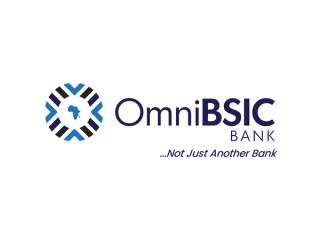Global Banking & Finance Review®

Company
Conor Coughlan
Global Head of Marketing
Volatility and ever-changing issuers, currencies and players are just some of the challenges associated with crypto (digital) currencies and Initial Coin Offerings (ICOs). Many investors, regulators and market players cite a general lack of transparency about who is issuing, investing and trading in this potential new sub-sector as a major blocker to their wider adoption.
This lack of transparency is clearly impeding many firms’ abilities to undertake suitable Know Your Customer (KYC)and Anti-Money Laundering (AML) checks and balances. In many cases they can’t truly confirm who they are doing business with, where their proceeds originated from and who the ultimate beneficial owners are, making many crypto (digital) currencies an unsuitable investment for their consideration.
Many regulators (not all) are suspicious that large swathes of illegal proceeds are being laundered in a clean stream of digital currencies worldwide. Potentially sanctioned countries, entities and prohibited persons maybe using digital currencies to circumvent restrictions (in addition to organized crime) to access new sources of revenue or to move illicit gains from one country to another or from one asset class to another via crypto.
The Gold Rush
Until recently this area has looked to many like the gold rush events of a bygone era, with prospectors and their backers rushing from one potential new mine/vein/source (currency) to another hoping to strike it lucky by backing ‘the currency’ that would beat all others!
In some cases, the owners of questionable mines (issuers) espoused that their currencies were the most lucrative of all. People should only invest in them, because they would make them rich beyond their wildest dreams! Naturally with all the hype, proclamations and questionable evidencing from some parties, a wave of excitement was created (euphoria or hysteria?) leading to many domestic citizens (non-informed retail investors) selling their homes (and other worldly possessions) in order to get the monies necessary to invest in these new currencies. So, they too could strike it lucky and become a billionaire overnight!
For some investors this proved to be the case. For many others it did not happen (yet) or they simply lost all their invested monies when a currency collapsed or were truly swindled out of their life savings by fake issuers. On the other side of the coin, some new currencies are proving to be highly beneficial in facilitating transactions or exchanges that previously were not possible or less likely to occur. They are clearly liquid and holding their own. Some are opening up entire new ways of doing business, investing and trading, however, the initial challenges still relate to KYC, AML and transparency remain for many.
So How Do We Solve the Challenges?
Fenergo, the Client Lifecycle Management (CLM) specialist, has commissioned a new piece of market research to better understand what the exact KYC, AML and transparency inhibitors are for institutional investors and what developments are needed to mature this potential sub-sector, so it can develop and play a more beneficial role for society as a whole.
On September 25th, we will be hosting a special webinar, with representatives from Invyo, Accenture and The A-Team Group, to share our initial findings, discuss and debate what progress has been made. We will also be sharing insights into the latest best practices, providing registered delegates with advanced access to our research.
In my opinion, it’s not a question of if cryptocurrencies will be regulated and matured but when! By working together, the industry can solve the associated challenges and move this new asset class forward. Some cryptocurrencies for a variety of reasons will not make the grade; they will collapse or be blacklisted because they are associated with nefarious parties. However, others have the potential to stimulate a new era of liquidity and commerce, giving rise to a whole new way of working if the challenges above can be addressed.
Explore more articles in the Videos category











